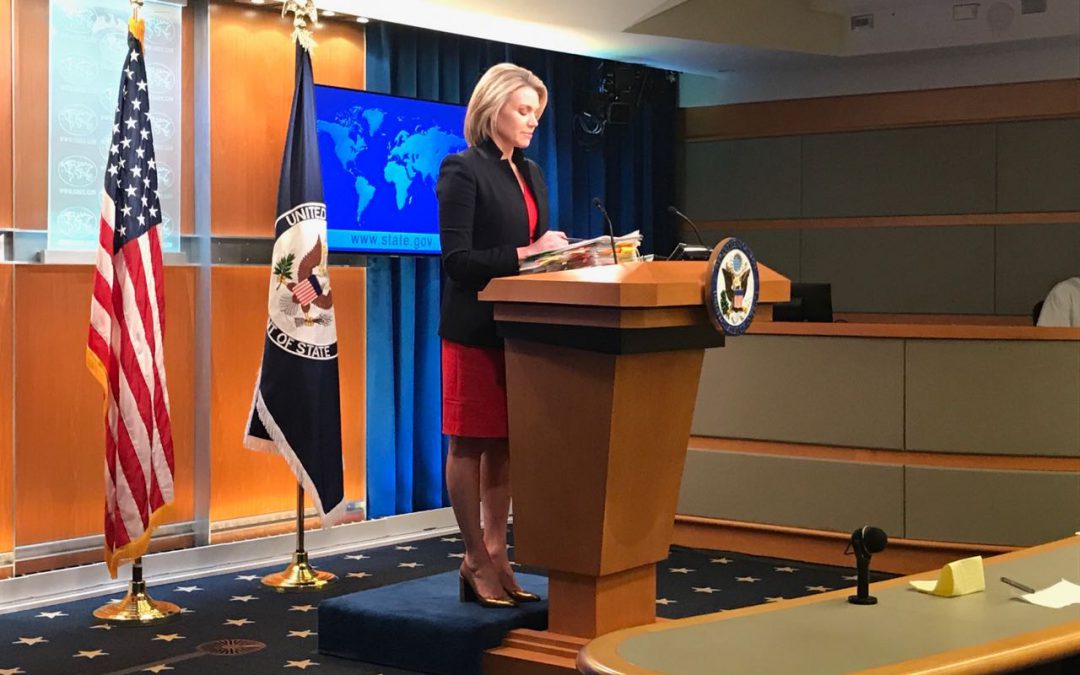The top U.S. diplomatic post on the Korean Peninsula has been vacant for a year, but the State Department said Thursday they believe U.S. interests are being carried out in the region.
New concerns emerged earlier this week after reports that Victor Cha, the presumed nominee to become the U.S. Ambassador to South Korea, had been notified that he is no longer under consideration by the White House. Cha’s nomination collapsed after he privately opposed the Trump administration’s consideration of a preventative, limited military strike against North Korea – referred to as a “bloody nose” strike – and to the administration’s threats to end a bilateral trade deal with South Korea.
“We are very confident that the United States’ government’s priorities are well represented in South Korea until the president does select a nominee and announces that nominee,” said State Department Spokesperson Heather Nauert at a news conference.
Nauert praised the work of the department’s South Korean embassy Chargé d’Affaires, foreign service officer who heads diplomatic affairs at an embassy in the absence of an ambassador.
“I can tell you that our Chargé, Marc Knapper, a long time foreign service officer… He has a strong relationship with the Republic of Korea,” she said. “He is well known there, he speaks the Korean language.”
Cha was the the former Director for Asian Affairs at the National Security Council. The State Department shot down the reports of the split on Thursday.
“I think a lot of reporters got ahead of the story, got ahead of the story and reported it as though it was fact that he was going to be the next ambassador,” said Nauert. “That was not the case. He was never nominated.”
Hours after news reports surfaced that he was no longer in consideration for the ambassadorship, Cha wrote a column in the Washington Post, explaining that he opposes the “bloody nose” strategy because he feels a strike wouldn’t stem the threat of North Korean nuclear proliferation, but rather would exacerbate it.
Chris Edelson, a political science professor at American University who specializes in national security issues, said he was surprised the U.S. diplomatic post in Seoul has been vacant since the beginning of the Trump administration, considering the strategic and diplomatic importance of the role in such a crucial time.
“It certainly seems like given what a flash point this is right now, it seems really strange that you wouldn’t make it a priority to have somebody in this position,” he said.
The State Department’s Under Secretary for Public Diplomacy and Public Affairs, Steven Goldstein, commented on the vacancy as well, during a special briefing Wednesday on preparations for security at the upcoming Olympic games in PyeongChang, South Korea.
“The fact that we do not have an ambassador in place has not impacted the security planning for the Olympic Games on behalf of the United States and for South Korea,” he said.


